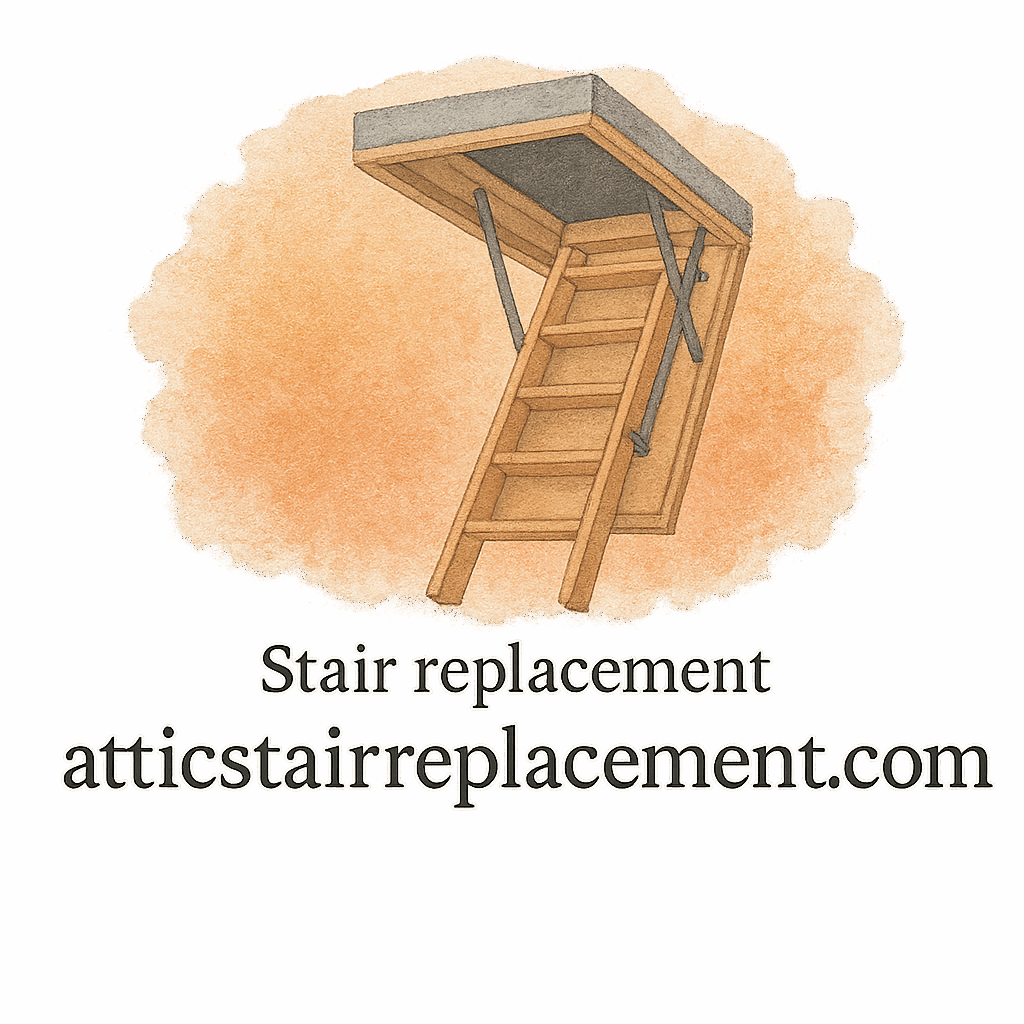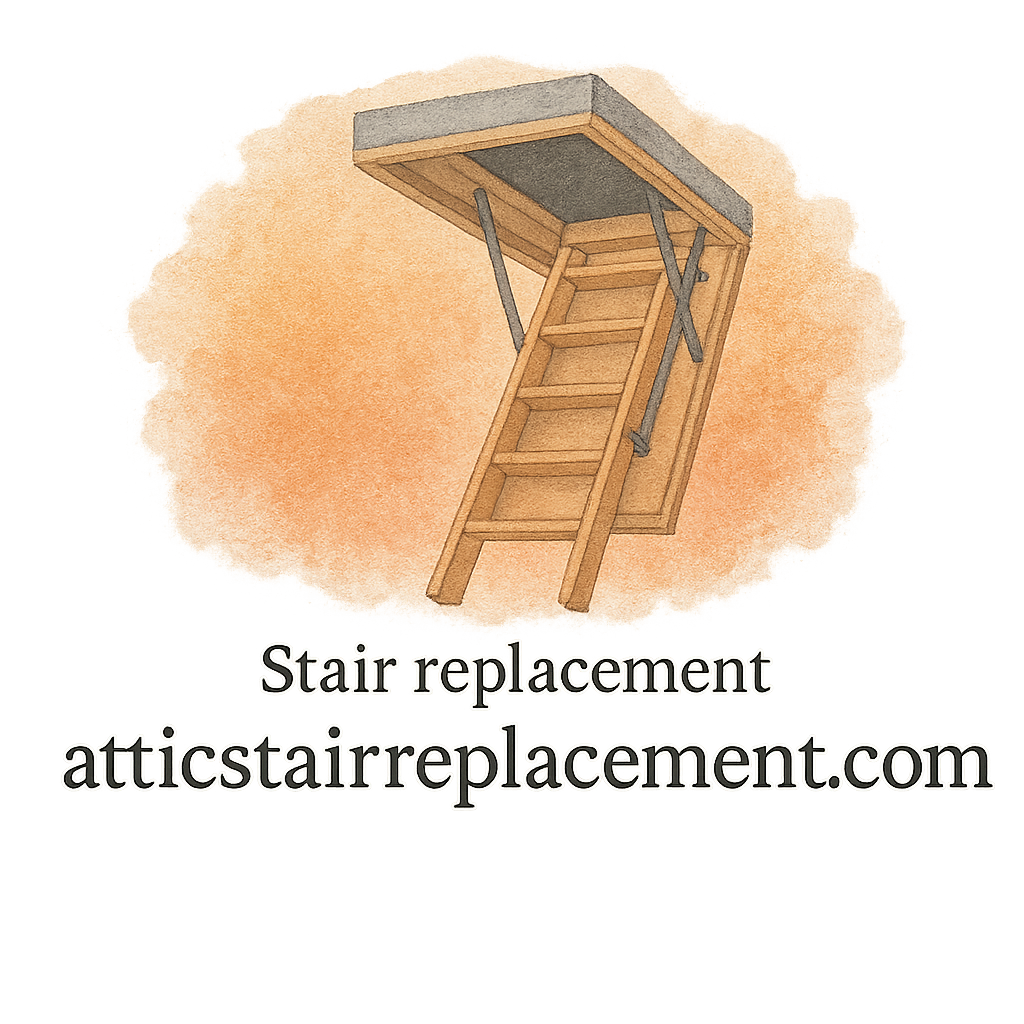Introduction
Thinking about upgrading your attic stairs? Before you can install a shiny new set, you’ll need to remove the old ones. Sounds simple, right? Well, not quite. Attic stair removal requires patience, safety precautions, and the right tools. In this guide, we’ll break down 8 steps to safely remove old stairs for attic stair replacement, making the process smooth and accident-free.
Why Safe Removal Matters Before Attic Stair Replacement
Replacing attic stairs isn’t just about swapping one ladder for another. Safe removal sets the stage for a flawless installation.
Preventing Structural Damage
Careless removal can damage your ceiling or attic opening, leading to costly repairs.
Ensuring Personal Safety
Old stairs can be heavy and unstable. Handling them incorrectly may cause falls or injuries.
Preparing for a Smooth Installation
A clean, intact opening ensures that your new attic stairs fit securely and function properly.
For detailed insights, check out our expert advice guide before starting your project.
Tools and Safety Gear You’ll Need
Essential Hand Tools
- Hammer
- Pry bar
- Screwdrivers
- Adjustable wrench
Protective Gear
- Safety goggles
- Work gloves
- Dust mask
- Hard hat
Optional Power Tools for Faster Work
- Power drill
- Reciprocating saw (only if parts are stuck)
For a full DIY list, visit our DIY installation guide.
Step 1: Clear the Area Around the Attic Stairs
Removing Stored Items
Before you touch a tool, clear any stored boxes, decorations, or seasonal items from the attic and floor below.
Creating a Safe Work Zone
Lay down a drop cloth and make sure the floor is free from tripping hazards.
Step 2: Inspect the Existing Staircase
Check for Loose Screws or Nails
Look closely at the joints, hinges, and hardware. Loose fasteners may cause the stairs to collapse during removal.
Identify Damaged or Weak Wood
If the wood looks rotten or cracked, handle it carefully—it may snap unexpectedly.
Step 3: Disconnect Power and Lighting Near the Attic Opening
Why Electrical Safety Matters
Some attic stairs have lights or wiring nearby. Accidentally hitting wires can cause shocks or fire hazards.
How to Safely Shut Off Power
Turn off the breaker that controls the attic light or outlet before working.
Step 4: Remove the Attic Stair Trim and Frame Cover
Using Pry Bars Without Damaging Ceiling
Insert the pry bar gently between the trim and ceiling to avoid breaking drywall.
Handling Hidden Nails or Screws
Old installations often hide fasteners under paint or plaster. Take your time locating them.

Step 5: Detach the Staircase from the Frame
Locating Fasteners
Use a flashlight to find bolts, nails, or screws securing the unit to the joists.
Safely Supporting the Ladder During Removal
Never let the ladder hang unsupported—have a helper hold it steady.
Step 6: Lower the Staircase Carefully
Using a Helper for Safety
Attic stairs are heavy and awkward to handle alone. Ask a partner to help lower it.
Avoiding Ceiling or Wall Damage
Tilt the stairs slowly to prevent knocking into walls or leaving gouges in the ceiling.
Step 7: Clean and Prepare the Opening for New Installation
Removing Dust and Debris
Vacuum out sawdust, nails, and scraps so your new unit sits flush.
Inspecting the Opening Dimensions
Measure the opening twice—width, length, and depth—to ensure your replacement fits perfectly.
Explore our home improvement section for additional prep tips.
Step 8: Dispose of Old Stairs Responsibly
Recycling or Reusing Materials
Some parts, like wood planks or hinges, can be reused in other DIY projects.
Safe Disposal Methods
If disposal is your only option, break down the staircase into smaller sections and follow your local waste guidelines.
Common Mistakes to Avoid During Stair Removal
Rushing the Process
Speed can cause slips, broken parts, or accidents. Take it slow.
Skipping Protective Gear
Gloves and goggles are non-negotiable. Splinters and falling debris are common.
Ignoring Electrical Hazards
Never work around wiring without shutting off power first.
For more attic stair replacement mistakes, see our dedicated guide.
Expert Advice for DIY Attic Stair Replacement
DIY projects can be rewarding, but professional insight always helps. Browse our expert advice hub for advanced tips on safe removal and installation.
When to Hire a Contractor Instead of DIY
If your attic stairs are unusually large, damaged, or wired into lighting, calling a contractor might save time and stress. Learn more in our contractor advice section.
Cost Considerations and Hidden Costs of Stair Removal
Don’t forget disposal fees, repair costs, or additional materials. Visit our hidden cost tag for budgeting insights.
Tips for Preparing for New Attic Stair Installation
Measuring Correctly
A miscalculation of even half an inch can mean wasted money and time.
Choosing Durable Materials
Invest in heavy-duty, durable attic stairs that will last for years.
See our product reviews before making a purchase.
Conclusion
Removing old attic stairs may sound intimidating, but with the right steps, tools, and precautions, you’ll set yourself up for a safe and successful attic stair replacement. Remember—clear your workspace, protect yourself, and move carefully. Whether you DIY or hire a pro, following these 8 steps to safely remove old stairs for attic stair replacement ensures your project goes smoothly.
For more resources, explore our full attic stair replacement guide.
FAQs
1. Do I need a permit to remove attic stairs?
Usually not, but check local building codes.
2. Can I reuse parts of my old attic stairs?
Yes, hardware and wood can often be repurposed.
3. How long does it take to remove attic stairs?
Most DIY removals take 2–4 hours.
4. What’s the average cost of attic stair replacement?
Expect between $300–$800 depending on type and installation.
5. Should I disconnect attic insulation before removal?
Not usually, but check if insulation is blocking access.
6. Can old attic stairs be recycled?
Yes—wood and metal parts can often be recycled.
7. What’s the safest way to lower attic stairs during removal?
Always use a helper to support the weight and prevent accidents.


